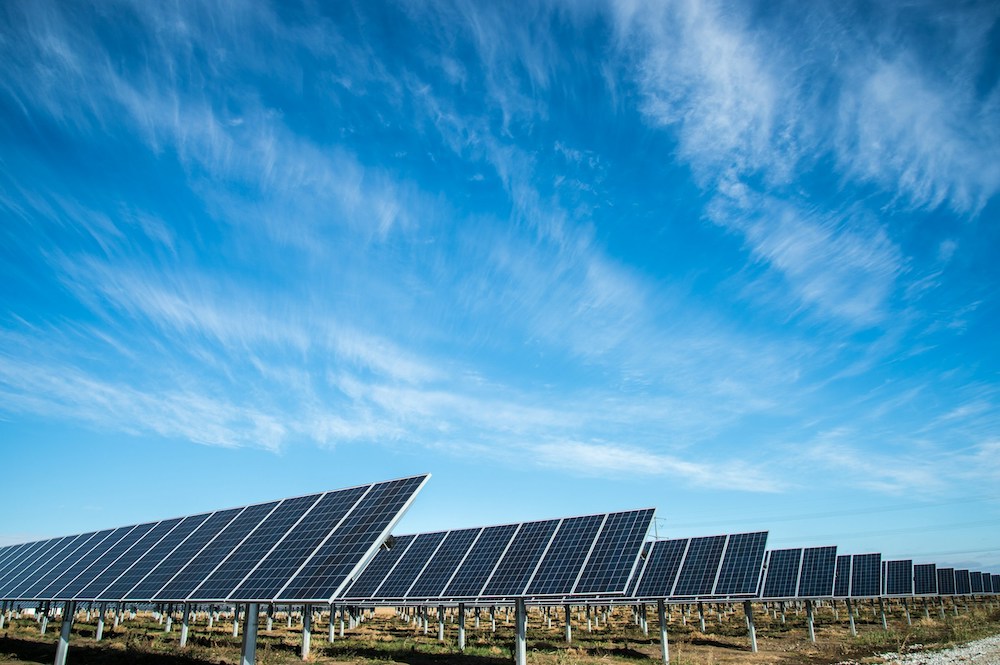
- Details
- By Chez Oxendine
- Energy | Environment
There's more than $500 million headed to Indian Country to pay for solar energy workforce training, technical assistance, and an array of projects such as residential solar arrays.
The money is part of a $7 billion funding pot under the Environmental Protection Agency's Solar For All initiative, or SFA. Tribes, tribal nonprofit groups, and tribal consortiums received roughly $504 million as part of the award funding, announced Monday. Millions more are expected pour into Indian Country through pledged support from states and nonprofits across the country that were also given SFA awards.
One tribal-focused group is Sacramento, Calif.-based solar nonprofit GRID Alternatives. The organization’s National Tribal Program received a $62.5 million award to help with capacity building and technical assistance for tribal solar projects.
Talia Martin, GRID’s national tribal program co-director, estimated that roughly 75% of its award money will go directly toward workforce development. The remainder will support technical assistance for projects such as generators or batteries.
Martin, a member of the Shoshone-Bannock Tribes, said GRID was “ecstatic” to receive money that would create jobs and support clean energy for tribal citizens and Native communities.
“Because we’re tribal-led, we want to be able to create jobs for our Indigenous professionals out there in the clean energy field,” Martin told Tribal Business News on Monday.
The Northern Plains Tribal Coalition, composed of 14 tribes across Wisconsin, North Dakota, South Dakota, Wyoming, and Montana, also received $135.6 million in SFA grant funding. The group has partnered with Indigenized Energy, an initiative of San Diego-based nonprofit Mission Edge, to develop their solar program.
Indigenized Energy Executive Director Cody Two Bears (Standing Rock Sioux) called the funding a “catalyst” for tribal energy.
“This is a once-in-a-generation award that will begin to transform how tribes achieve energy sovereignty,” Two Bears said in a statement. “The shift from extractive energy to regenerative energy systems will be the legacy we leave for our future generations.”
In addition to the awards mentioned above, other direct awards to Tribal-focused groups under Solar For All include:
- $62.3 million to the Midwest Tribal Energy Resources Association, which is partnering with nonprofits GRID Alternatives, the Alliance for Tribal Clean Energy, and the Native CDFI Network. The money will help the partnership deploy residential solar projects throughout 35 tribal communities in Michigan, Minnesota, and Wisconsin.
- $62.5 million to the Tanana Chiefs Conference, partnering with the Alaska Native Tribal Health Consortium, and the Alaska Housing Finance Corporation. The three partners will work to help “Tribal residents throughout Alaska the opportunity to benefit from solar.”
- $25.1 million to the Hopi Utilities Corporation, alongside partners Arizona State University and the Hopi Renewable Energy Office. The money will help participating partners deploy residential solar and storage systems on the Hopi reservation.
- $156.1 million to Oweesta Corporation, the nation’s largest Native Community Development Financial Institution (CDFI) intermediary. Oweesta will use the money to act as intermediary between tribal governments/organizations, professional services partners, and developers across the country.
The Solar for All initiative is part of the EPA’s $27 billion Greenhouse Gases Reduction Fund (GGRF), created under the Inflation Reduction Act. In addition to the $500 million pledged to Indian Country under Solar for All, the GGRF will also push $1.5 billion into tribal renewable energy through other grant programs announced earier this month, per Tribal Business News reporting.
The newest initiative provides each awardee with a five-year grant term. The first year of the term is dedicated to designing and implementing subgrant and support programs, according to the EPA.
For several states — including Washington, Minnesota, Arizona, and North Carolina — and at least one nonprofit, that means bringing tribes to the table as their SFA plans take shape and they roll out funding.
Nebraska-based lending nonprofit Center for Rural Affairs consulted with tribes in the state during its application process. It plans to keep that consultation going in the first year of its grant term, too, the organization’s executive director, Brian Depew, told Tribal Business News.
The Center received $62.5 million in SFA funding, including a set-aside for serving a “minimum of 300 tribal households,” Depew said. That means getting solar arrays set up on rooftops, enabling access to solar in multi-family homes, or building community projects.
“We wanted to make a clear commitment to tribes, so that’s why we put that in our application,” Depew said. “That’s just the floor. We would be thrilled if we’re able to do more than that.”
It’s a similar story in North Carolina. The state’s Department of Environmental Quality (DEQ) received $156 million, pledging support for tribal solar workforce development and projects. Tribes will be part of a coalition managing SFA funds called EnergizeNC, according to DEQ Deputy Secretary for Public Affairs Sharon Martin.
“We plan to work with tribes and other community entities to share information about the program and program eligibility,” Martin said. “We would encourage interested tribal leaders and representatives to get involved in the planning phase over the next year.”
Brian Edwards contributed reporting to this story.
